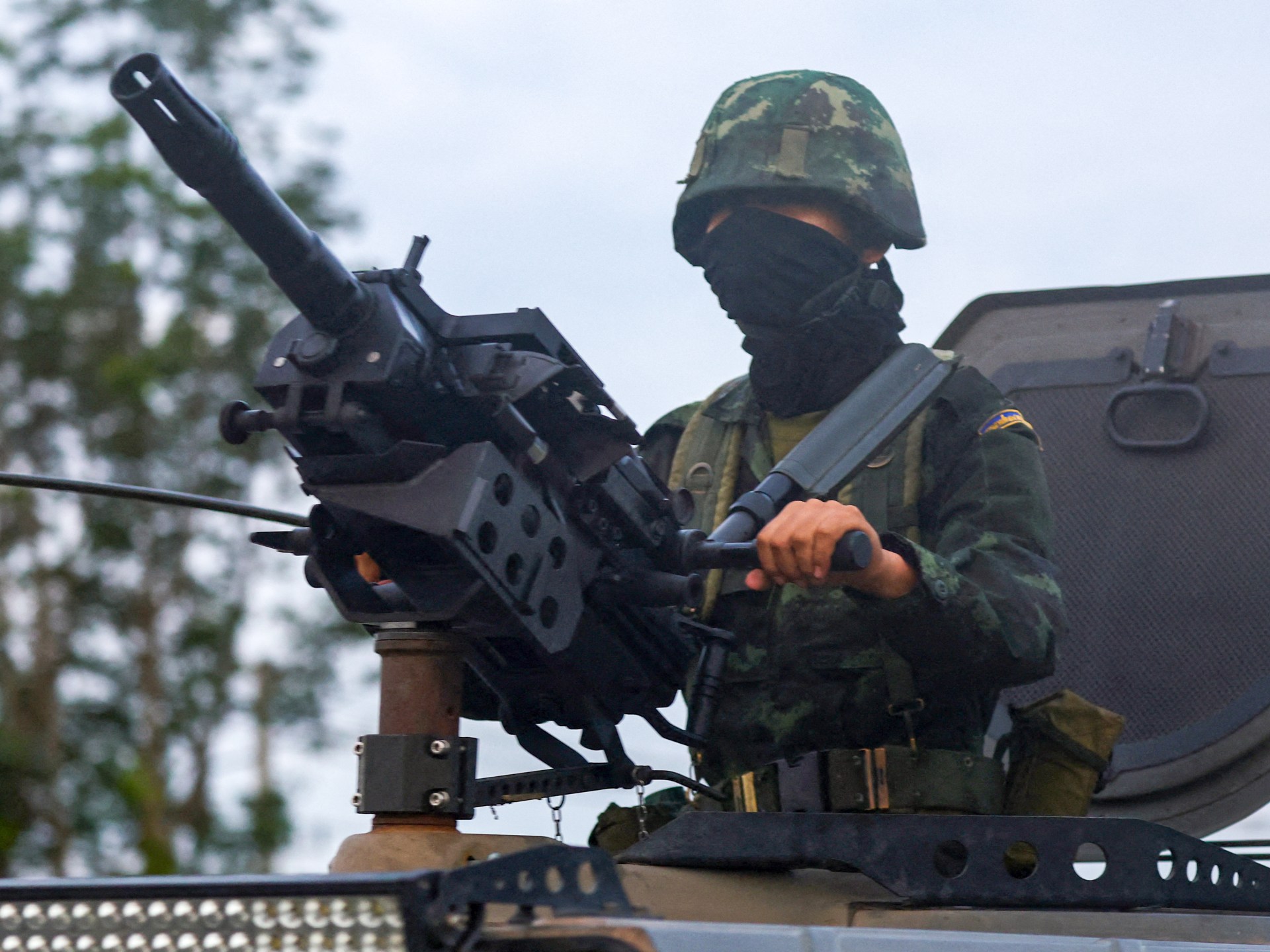The leaders of Cambodia and Thailand have agreed to an “unconditional” ceasefire, effective on Monday at midnight, in a bid to bring an end to their deadliest border conflict in more than a decade.
Thailand’s acting Prime Minister Phumtham Wechayachai and Cambodia’s Prime Minister Hun Manet agreed to put down their arms after five days of fierce fighting that killed at least 36 people.
Malaysian Prime Minister Anwar Ibrahim, who hosted the talks in Malaysia’s administrative capital, Putrajaya, said that Thailand and Cambodia had agreed to an “immediate and unconditional” ceasefire.
“This is a vital first step towards de-escalation and the restoration of peace and security,” Anwar declared. A meeting between the military commanders of both nations will follow on Tuesday, he added.
The ceasefire will come into force at midnight (17:00 GMT) as Monday becomes Tuesday.
Thailand and Cambodia have blamed each other for the border conflict that erupted on Thursday, July 24. The latest conflict, which dates back to disagreements over colonial-era maps, has displaced more than 270,000 from both sides of the Thailand-Cambodia 817-km (508-mile) land border.
What did rival leaders say?
Cambodia’s Prime Minister Hun Manet said: “Today we have a very good meeting and very good results … that hope to stop immediately the fighting that has caused many lives lost, injuries and also caused displacement of people.”
“We hope that the solutions that Prime Minister Anwar just announced will set a condition for moving forward for our bilateral discussion to return to normalcy of the relationship, and as a foundation for future de-escalation of forces,” he added.
Meanwhile, Thailand’s acting Prime Minister Phumtham Wechayachai, who had expressed doubts about Cambodia’s sincerity ahead of negotiations in Malaysia, said Thailand had agreed to a ceasefire that would “be carried out successfully in good faith by both sides”.
In a joint statement issued after the talks had finished, Malaysia, Thailand and Cambodia said their respective defence ministers “have been instructed to develop a detailed mechanism for the implementation, verification, and reporting of the ceasefire”.
The sides also agreed to move ahead with a meeting of their so-called “General Border Committee” on August 4, in Cambodia.
Why were the two countries fighting?
The Southeast Asian neighbours have accused each other of starting hostilities last week, before escalating the conflict with heavy artillery bombardments.
Fighting began between the South Asian neighbours on July 24, following weeks of tensions which had been brewing since May, when a Cambodian soldier was killed in an armed confrontation on the border.
In February, a dispute over Prasat Ta Moan Thom, a Khmer temple close to the border in Thailand, intensified when Thai police stopped Cambodian tourists from singing their national anthem near the holy site.
Since the start of the year, Thailand’s Interior Ministry says more than 138,000 people have been evacuated from regions bordering Cambodia. On the other side, more than 20,000 Cambodians have been evacuated, according to local media.
Reporting from Thailand’s border province of Surin on Monday, Al Jazeera’s Tony Cheng said the ceasefire announcement is welcome news for many people, especially those living along the border who have been displaced.
“There are so many people who have been affected by this, and they just want to go home so badly,” he said on Monday.
But Cheng also reported that clashes were still occurring on both sides of the border, even as the talks in Malaysia had concluded.

What role did the US and China play?
Diplomats from the United States and China were also present at the meeting in Malaysia.
Hun Manet, Cambodia’s PM, said on Monday that the meeting had been “co-organised by the United States and with participation of China”.
China has strong economic links to Thailand and Cambodia, and is a close political ally of the latter.
US Secretary of State Marco Rubio on Monday welcomed the ceasefire. “The United States applauds the ceasefire declaration between Cambodia and Thailand announced today in Kuala Lumpur,” Rubio said in a statement.
“We urge all parties to follow through on their commitments.”
In separate calls with Phumtham and Hun Manet on Saturday, Trump had threatened that Washington would not reach trade deals with either country as long as fighting continued.
“We’re not going to make a trade deal unless you settle the war,” Trump said on Sunday, adding that both leaders expressed willingness to negotiate after speaking with him directly.
Both Thailand and Cambodia face the prospect of a 36 percent US tariff from August 1.
In their remarks after the meeting, both Phumtham and Hun Manet thanked Anwar and Trump, as well as China, for helping reach the ceasefire.


